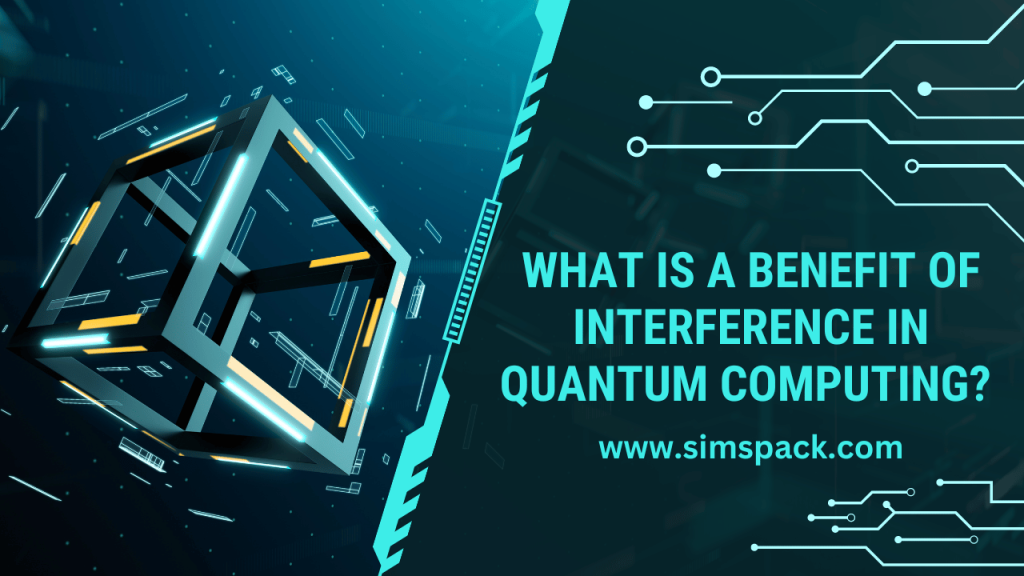Quantum computing is undeniably one of the most revolutionary technologies of the 21st century. Its rise promises to redefine our approach to problem-solving, offering solutions to complex computational challenges that are far beyond the reach of classical computers. Among the powerful quantum phenomena it leverages, interference stands out, offering unique advantages that further turbocharge the capabilities of quantum computers. Let’s discuss about “What is a Benefit of Interference in Quantum Computing?” in detail in the paragraphs mentioned below.
The Magic of Quantum Interference

Just like the crests and troughs of two intersecting water waves can either add up or cancel each other, quantum states, too, can interfere. This interference is what allows quantum superposition and quantum entanglement, the foundational elements of quantum computing, to work their magic. When particles are entangled, changes to one instantly affect the other, regardless of the distance between them—a phenomenon Einstein famously referred to as “spooky action at a distance”.
Unleashing the Quantum Advantage
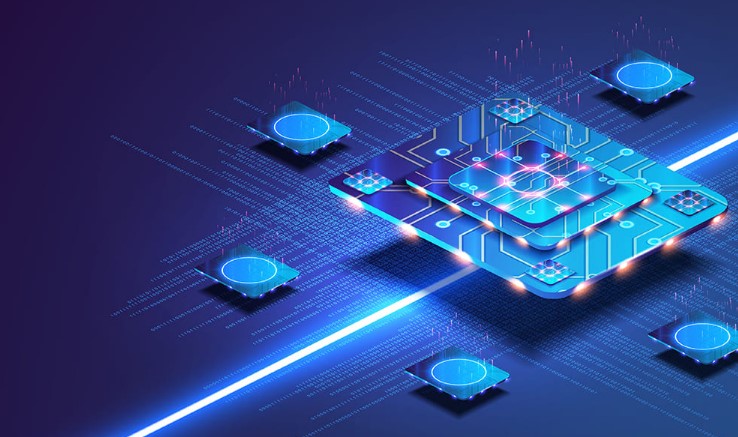
With quantum parallelism, quantum computers can hold multiple states simultaneously, dramatically amplifying their computational power. This allows them to process massive amounts of data and solve complex computations at lightning speed. And the heart of this capability? You guessed it: interference.
Interference is the cornerstone of quantum algorithms, influencing how data is manipulated, processed, and interpreted. Algorithms like Shor’s for factoring large numbers and Grover’s for searching unsorted databases utilize interference to significantly enhance computational efficiency.
Quantum state manipulation, another critical aspect of quantum computing, also benefits from interference. Quantum states can be delicately manipulated to guide a quantum system through a computational path. The constructive and destructive interference of these states steers the calculations toward the correct answer and away from wrong ones.
Mastering Quantum Errors with Interference
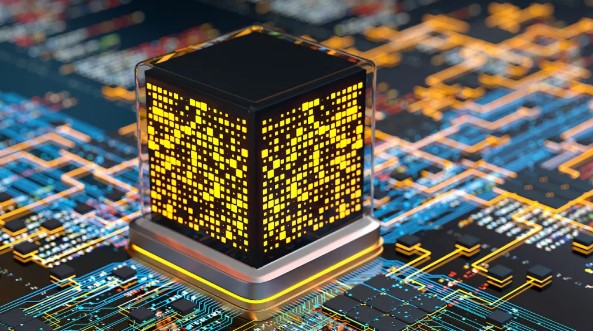
The fragile nature of quantum states often leads to errors that can disrupt quantum computations. However, through quantum error correction, a technique that utilizes interference, these errors can be detected and corrected without directly measuring the quantum state. This maintains the integrity of the quantum information, enabling more robust quantum computing.
Quantum Speedup: Leaving Classical Computers in the Dust
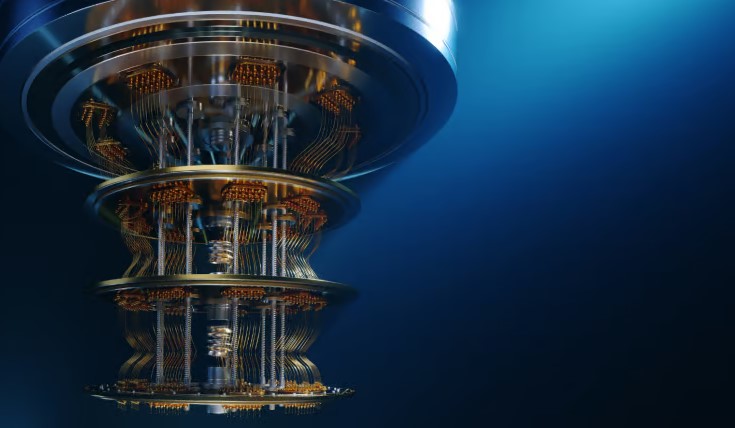
Quantum computers, with their ability to perform multiple calculations simultaneously, promise a quantum speedup over traditional computers. Interference, as the conduit for quantum parallelism and entanglement, is instrumental in achieving this advantage.
Strengthening Quantum Communication and Encryption
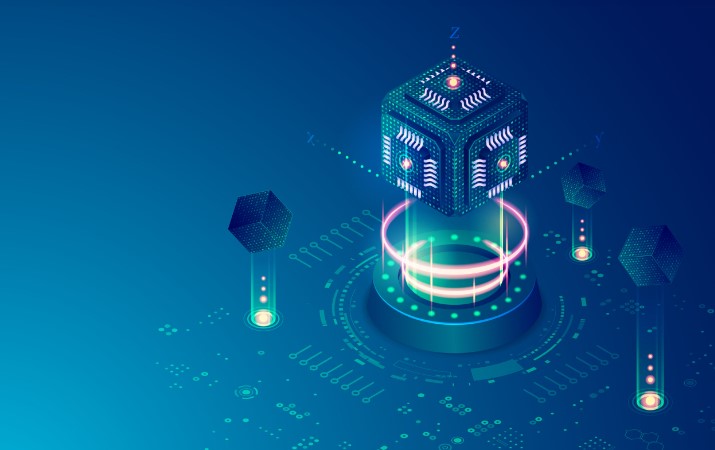
The role of interference extends beyond computational speed and efficiency. It is also a key player in quantum communication and quantum encryption. Quantum key distribution (QKD), for instance, utilizes interference to enable ultra-secure data transmission, making eavesdropping virtually impossible.
Quantum Gate Operations: A Dance of Interference
Interference is the key to the success of quantum gate operations. Quantum gates, analogous to logic gates in classical computing, manipulate the state of qubits (quantum bits) and serve as the building blocks of quantum algorithms. The complex choreography of constructive and destructive interference can make specific states more likely than others, allowing quantum computers to perform intricate calculations with precision and efficiency.
Pushing Boundaries with Quantum Simulation and Metrology
Quantum simulation and quantum metrology represent two incredibly exciting applications of quantum computing where interference plays a crucial role. Quantum simulators, with their ability to mimic the behavior of quantum systems, allow us to explore the mysteries of quantum mechanics and material science in ways previously thought impossible.
Quantum metrology, the study of making measurements using quantum mechanical systems, benefits greatly from quantum interference. Quantum states’ interference patterns can be used to make ultra-precise measurements that significantly exceed the precision limits of classical metrology, proving invaluable in fields ranging from particle physics to gravitational wave detection.
Optimizing Problem Solving with Quantum Annealing
Quantum annealing, a quantum algorithm used for solving optimization problems, utilizes interference to find the global minimum of a given function—a process analogous to finding the lowest point in a landscape of hills and valleys. By taking advantage of interference, quantum annealers can ‘tunnel’ through the barriers (hills), potentially reaching the solution (the lowest valley) much faster than their classical counterparts.
Looking Forward: The Quantum Era
In the quest for quantum supremacy, interference is our secret weapon. It shapes the course of quantum computations, guides our exploration of the quantum universe, and safeguards our quantum communications. As we continue to refine our understanding of quantum interference and our ability to harness it, we inch ever closer to the quantum era.
As we progress further into the 21st century, we are certain to see quantum computing become an increasingly integral part of our lives. The journey will be challenging, but the rewards promise to be immeasurable. The quantum revolution is upon us, driven in part by the intriguing phenomenon of interference.
Bridging the Quantum Divide
The quantum world can seem distant and abstract, but it’s closer than you think. With every search query you make, every digital transaction you process, and every secure communication you rely on, you’re interacting with the progeny of quantum mechanics. Interference and other quantum phenomena are reshaping our digital landscape. It’s time to bridge the quantum divide and embrace this new, quantum-infused reality.
Discovering Quantum Possibilities
Embracing the benefits of interference in quantum computing can lead to substantial advancements in various scientific and technological arenas. It can enhance the quality of medical imaging, allow for better modeling of molecular interactions for drug discovery, improve climate modeling, and even revolutionize artificial intelligence and machine learning by handling vast datasets more effectively.
And, perhaps most exciting of all, quantum computing, aided by interference, might be the key to unlocking some of the universe’s most profound secrets, from the nature of dark matter to the mysteries of quantum gravity.
Quantum Computing: A New Dawn of Technological Evolution
As we stand on the cusp of this new era of technological evolution, we must remember that the promise of quantum computing is not just in its power to calculate but in its potential to transform – to fundamentally alter our understanding of the universe and our place within it.
Interference in quantum computing offers us the tools to navigate this new terrain. It’s an exciting time to be part of the journey. Join us as we step into the future, powered by the quantum revolution.
FAQs on What is a Benefit of Interference in Quantum Computing?
1. How does interference improve the performance of quantum computing?
Interference is critical to quantum computing performance as it drives quantum parallelism, state manipulation, and error correction. These collectively boost computational speed and efficiency.
2. Can interference in quantum computing enhance computational speed?
Absolutely. By enabling quantum parallelism and entanglement, interference allows quantum computers to perform multiple computations simultaneously, significantly enhancing their speed.
3. What are the benefits of interference in quantum information processing?
Interference enables the precise manipulation of quantum states, steering computations toward the correct outcomes. It also aids in error detection and correction, ensuring the integrity of quantum information.
4. How does interference enable quantum parallelism?
Interference allows quantum bits (qubits) to exist in multiple states simultaneously, a phenomenon known as superposition. This forms the basis of quantum parallelism, where a quantum computer can process several computations concurrently.
5. Can interference be utilized for quantum simulation?
Indeed, interference is a crucial component of quantum simulation. It allows quantum simulators to model and predict the behavior of quantum systems accurately, offering insights that could lead to the development of new materials or drugs.
6. How does interference impact quantum communication?
Interference is vital for quantum key distribution (QKD) in quantum communication. It ensures that any attempt at eavesdropping would disturb the quantum states, making the communication secure by detecting such intrusion attempts.
7. What are the benefits of interference in quantum encryption?
Interference makes quantum encryption more secure. The principles of quantum mechanics, including interference, guarantee that any attempt to intercept a quantum-encrypted message would leave traces, thus enhancing the security of the communication.
Also Read: ChatGPT Optimizing Language Models for Dialogue (How it Work) 2023
Conclusion: What is a Benefit of Interference in Quantum Computing?
There’s no doubt thatquantum computing is set to transform the technology landscape. The role of interference in maximizing the potential of this powerful computing paradigm cannot be overstated. From enhancing computational efficiency to enabling ultra-secure communication, interference offers a myriad of benefits that make quantum computing a truly revolutionary technology.
As we delve deeper into the quantum world, we can expect more groundbreaking discoveries and applications. The possibilities are endless, and every stride we make brings us closer to a future where quantum computing is as integral to our lives as the digital devices we currently rely on.
In this dynamic, fast-evolving field, the key is to stay informed and be ready to adapt. Quantum computing, driven by phenomena like interference, is here to reshape our digital world. Are you ready for the quantum leap?
The field of quantum computing is complex and can be daunting, but its potential benefits are too significant to ignore. Understanding interference and its benefits in quantum computing is a step towards embracing the quantum revolution. Remember, every technological advancement was once a mystery, so dive in, explore, and let’s quantum together!

